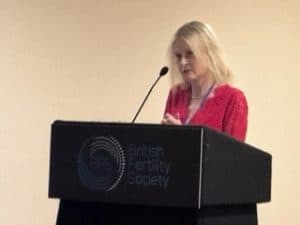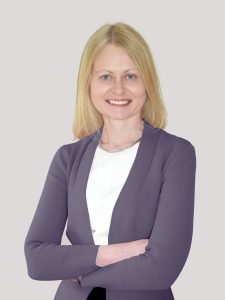2 September 2024
There are growing calls across the scientific and fertility sectors for global limits for egg and sperm donors. This is being fuelled by media and television coverage of prolific sperm donors as seen in Netflix’s recent documentary series “The Man with 1,000 Kids” (released in July 2024) and concerns about the wellbeing of donor conceived individuals. Whilst there is a 10-family legal limit for egg and sperm donors who donate at UK licensed fertility clinics, there are currently no limits on how many times they can donate abroad since there are no international restrictions.
Lack of legal restrictions on import and export of donor eggs and sperm
Whilst eggs and sperm donated in the UK can only be used to create a maximum of 10 families through fertility treatment at UK licensed fertility clinics, there are currently no restrictions preventing UK donated eggs and sperm from being exported for use in fertility treatment abroad. This means that when a UK egg or sperm donor has reached the 10-family legal limit in the UK, designed on policy grounds to restrict the numbers of donor conceived half-siblings, a legal loophole means their donated eggs and sperm can still be used abroad to conceive more genetic half-siblings.
The globalisation of the fertility sector, coupled with increasing demand for donor eggs and sperm and growing numbers of international egg and sperm banks in the UK and abroad is further complicating the donor conception landscape. In the absence of an international donation cap, the European Sperm Bank has a global limit of 75 families per donor and estimates its donors create on average 25 families worldwide. Cryos, the world’s largest sperm and egg bank, “aims for 25 – 50 families per donor” worldwide. This lack of international regulation and the increasing commercialisation of fertility treatment and egg and sperm donation practices will only serve to intensify this picture.
Impact on donor conceived individuals and their families
The lack of global limits for egg and sperm donation means that donor conceived individuals increasingly face the prospect of having multiple tens or more of donor conceived half-siblings in other parts of the world. Since eggs and sperm can now be frozen for long periods of time, donor conceived individuals face the reality of having uncertain and growing numbers of genetic half-siblings of varying ages (including born decades apart) over their lifetime.
Added to this, direct-to-consumer DNA testing undertaken by upwards of 40 million people worldwide means that donor conceived individuals and their families are increasingly identifiable and contactable. This evolving landscape can give rise to all manner of unanticipated issues and outcomes. How many donor conceived genetic half-siblings is too many? How should donor conceived individuals navigate their personal and the collective sense of their genetic origins? How should they approach encounters, relationships and communication with their genetic half-siblings? How does having large numbers of donor conceived genetic half-siblings impact personal family units and their partners/spouses and children? How does this evolving picture affect donor conceived people emotionally and does it have a negative impact on their mental wellbeing? Does having a large number of genetic half-siblings bring any medical issues, risks or benefits (e.g. management of medical history, approaches to medical diagnosis and treatment or disease risk)?
Specialist Family Building and Donor Conception Law
Specialist fertility and family law strategies inform effective approaches to donor conception and family life. They identify and manage a range of legal and practical issues associated with egg and sperm donation to help maximise successful outcomes. In doing so, they address:
- Complex personal and family situations.
- Donor conception and issues arising from impaired fertility/infertility, cancer diagnosis/illness, unsuccessful conception attempts, gender transition, change in personal circumstances, age and later-life parenthood.
- Intra-family egg or sperm donation.
- Assisted conception with a known sperm/egg donor, anonymous/identity-release donor or co-parent (e.g. legal parentage, parental rights, financial responsibility, risks in practice and dispute mitigation).
- Posthumous conception with the eggs, sperm and embryos of a deceased loved one in fertility treatment with donor conception/surrogacy (e.g. due to illness or accident).
- Legal and wider aspects of international surrogacy or a UK surrogacy arrangement and donor conception.
- Donor conception issues/disputes (e.g. concerning formal DNA/paternity testing, direct-to-consumer genetic testing, fertility fraud, biological and legal parentage and birth certificates).
- Care and upbringing of children following a dispute with an ex-partner, parent, donor or surrogate (e.g. contact, residence, financial arrangements, parental responsibility, specific issue or prohibited steps).
- Issues with importing frozen gametes/embryos into the UK for fertility treatment and surrogacy (e.g. due to anonymous and commercially obtained donor gametes/embryos which engage UK public policy restrictions).
- Issues exporting frozen gametes/embryos abroad for fertility treatment and surrogacy (e.g. consent and storage term difficulties).
- Expert witness fertility, surrogacy and donor conception law services.
If you need to put in place effective legal and practical strategies or require advisory and consultancy to navigate fertility and pre-conception, assisted reproductive technologies, fertility treatment, donor conception, global family building and effective parenting contact Louisa Ghevaert by email louisa@louisaghevaertassociates.co.uk or telephone +44 (0)20 7965 8399.
Images: Louisa Ghevaert, CEO & Founder Louisa Ghevaert Associates







